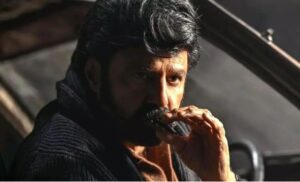
Last month’s failed coup may allow the Turkish President to cement his Islamist narrative in the national consciousness.President Recep Tayyip Erdogan has always had ambitions of surpassing Mustafa Kemal Ataturk, the founder of modern Turkey, as the country’s most consequential figure.
Now, a failed coup may allow him finally to do that.
For years, Mr. Erdogan, an Islamist, has celebrated great moments of the Ottoman past when Istanbul was the seat of the Islamic caliphate, and played down Turkey’s secular history established by Ataturk.Consolidating powerWith last month’s failed coup, he now has his own story, and he has wasted little time propagating his own set of events and symbols to cement the narrative in the national consciousness.
A bridge over the Bosporus that was seized by renegade soldiers has been renamed for the civilians killed there. A square in Ankara, occupied by tanks as the military tried to take power, has been renamed as a symbol of democracy. Numerous street names have been changed to honor those who died defending the government.
Pro-government news media outlets have published thick volumes about the coup, celebrating the victims as national heroes, and the state broadcaster is making a documentary. Statues and monuments are planned, and next July 15, the anniversary of the failed coup, will be a national holiday. The conspirators have their place, too. Far on the outskirts of Asian Istanbul, on a plot of gravelly land near a dog shelter, graves have been dug for felled coup plotters in what is being called “the cemetery for traitors”.
‘New Turkey’Mr. Erdogan’s purpose is to ensure not only that nothing is lost to history, but also that this latest chapter in Turkey’s history will be largely owned by his Islamist supporters.In doing so, analysts say, he has found an opportunity to celebrate what he has long called the “New Turkey” — a modern nation that emphasises Islam and is a break from the country’s secular past.Kerem Oktem, a Turkish historian at the University of Graz in Austria, described it as “a narrative of an Islamist defence of democracy”.
The narrative is one of heroic defiance in the name of Islam, against foreign powers. But there is a twist: In Mr. Erdogan’s telling, the coup was led not by the old secular elite, but by followers of Fethullah Gulen, a cleric who heads a rival Islamist movement and lives in self-exile in Pennsylvania.
The coup attempt, and how it was defeated by crowds of Erdogan supporters and even some secularists who flooded the streets to stand up to the soldiers, has already been referred to as Turkey’s second war of independence.The first one, led by Ataturk, followed the collapse of the Ottoman Empire at the end of World War I and was at the centre of constructing a Turkish identity centred on secular and nationalist principles. — New York Times News Service
Recent Random Post:















